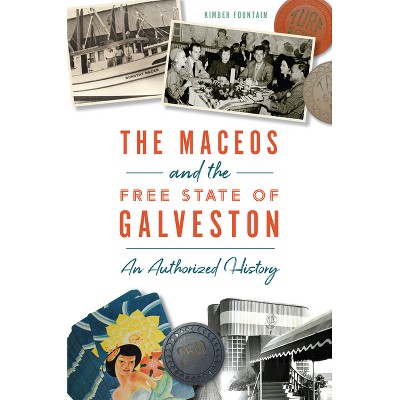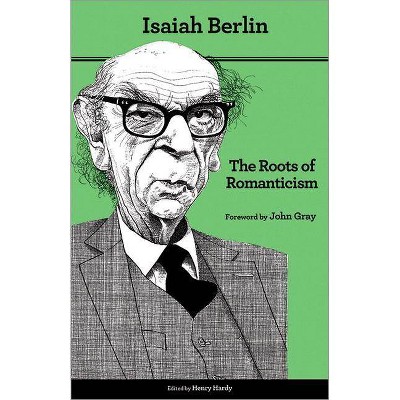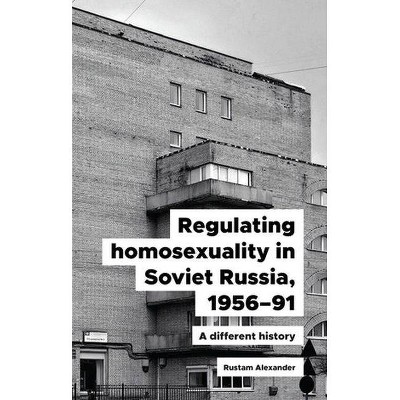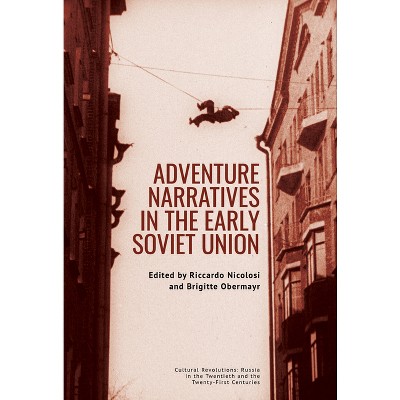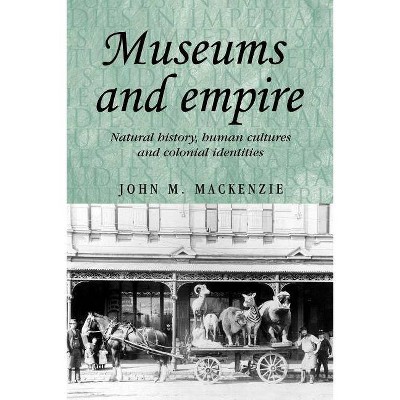Sponsored

AIDS in Soviet Russia - by Rustam Alexander (Hardcover)
Pre-order
Sponsored
About this item
Highlights
- The first book to tell the shocking story of the AIDS crisis in Soviet Russia.
- About the Author: Rustam Alexander is a researcher who specialises in Russian and Soviet history.
- 248 Pages
- History, Social History
Description
About the Book
This is the first book to chronicle the history of AIDS in Soviet Russia, detailing the government's denial of the epidemic, its cynical disinformation campaigns, and the human cost of its indifference.Book Synopsis
The first book to tell the shocking story of the AIDS crisis in Soviet Russia.
Throughout the 1980s, as the world was grappling with the escalating crisis of AIDS, Soviet Russia continued to deny there was a problem. Arguing that the disease was limited to foreigners and 'immoral' groups, the government failed to take meaningful action, long past the point other countries had begun to recognise the full scale of the threat. In this ground-breaking book, Rustam Alexander tells the story of AIDS in Soviet Russia. Fixated on disinformation, censorship and the persecution of marginalised communities, the Soviet authorities wasted precious time, allowing the epidemic to strike at the very heart of the nation: its children. Yet, despite the government's failure, a number of brave journalists, doctors and nascent gay groups decided to take matters into their own hands and engage in full-fledged AIDS activism. Tracing the political and social response to AIDS in the final years of the Soviet era, Alexander sheds light on the devastating consequences of government inaction. He draws on personal stories, media reports and archival materials to provide a riveting account of the Russian people's fight against AIDS amid the tumultuous transformations of Gorbachev's perestroika.From the Back Cover
Throughout the 1980s, as the world was grappling with the escalating crisis of AIDS, Soviet Russia continued to deny there was a problem. Arguing that the disease was limited to foreigners and 'immoral' groups, the government failed to take meaningful action, long past the point other countries had begun to recognise the full scale of the threat.
In this ground-breaking book, Rustam Alexander tells the story of AIDS in Soviet Russia. Fixated on disinformation, censorship and the persecution of marginalised communities, the Soviet authorities wasted precious time, allowing the epidemic to strike at the very heart of the nation: its children. Yet, despite the government's failure, a number of brave journalists, doctors and nascent gay groups decided to take matters into their own hands and engage in full-fledged AIDS activism. Tracing the political and social response to AIDS in the final years of the Soviet era, Alexander sheds light on the devastating consequences of government inaction. He draws on personal stories, media reports and archival materials to provide a riveting account of the Russian people's fight against AIDS amid the tumultuous transformations of Gorbachev's perestroika.Review Quotes
'A profoundly shocking exposé of how Soviet and Russian state ignorance, misinformation, prejudice and cover-ups created an HIV/AIDS crisis of catastrophic proportions.'
Peter Tatchell, LGBT+ and human rights campaigner
Richard A. McKay, author of Patient Zero and the Making of the AIDS Epidemic 'Churchill described Russia as "a riddle wrapped in a mystery inside an enigma". Rustam Alexander's book lifts the veil around the early AIDS pandemic in the country. Essential reading for students of contemporary Russian history, public health and epidemiology, it is a stark warning of the failure of interventions.'
Alan Whiteside, author of HIV/AIDS: A Very Short Introduction 'Impeccable scholarship combined with an extraordinary depth of research. AIDS in Soviet Russia is an essential record of events told concurrently with the unravelling of the Soviet empire and outlining the appalling failures, neglect and violations of human rights inherent within that derelict and corrupt system. A master work.'
Derek Frost, author of Living and Loving in the Age of AIDS
About the Author
Rustam Alexander is a researcher who specialises in Russian and Soviet history. He is the author of Red Closet: The Hidden History of Gay Oppression in the USSR (2023), Gay Lives and 'Aversion Therapy' in Brezhnev's Russia (2023) and Regulating Homosexuality in Soviet Russia, 1956-91: A Different History (2021). His work has appeared in Slavic Review, Russian History, Europa-Asia Studies and Kritika. He is a columnist for Novaya Gazeta Evropa, an independent Russian newspaper.



